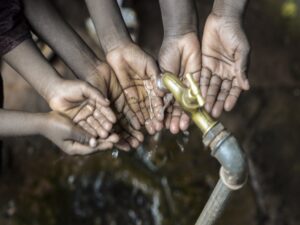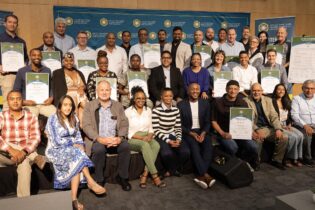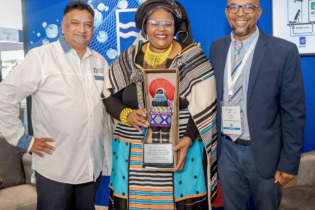President Cyril Ramaphosa gave a keynote address at the two-day Human Rights Commission National Conference on Local Government Accountability, Service Delivery and Human Rights.
The purpose of the conference was to identify challenges at local government and to also enhance human rights-based service delivery. The conference engaged with a broad cross-section of stakeholders to enable the Commission to interrogate the roles and responsibilities of the other spheres of government and government entities in supporting the government. It also considered methods for effective monitoring of service delivery, ensuring accountability, engagement, non-discrimination, and transparency in service delivery. President Ramaphosa expressed his concern at the decline of water and sanitation services at the local government level. “Many municipalities are unable to deliver services to the people that they serve. This is a crisis of enormous proportions, and it undermines our constitution. Failure of local government is causing a trust deficit with the citizenry. We have just received a disturbing report from the Auditor-General on the dismal performance of the municipalities. This conference should therefore enable us as a government to move beyond the diagnosis of problems but to rather find solutions that will be implemented”, said President Ramaphosa. The President also highlighted the lack of water and decent sanitation in local communities. “Many of our people are still living in deplorable conditions with inhumane sanitation services and also without water. This should not be happening and the trajectory of what has been happening for a long time at municipalities must be changed. Local government needs a massive review and it needs to start to account to the people. Municipalities are on our radar and we are deploying multi-disciplinary teams which include SALGA,” emphasised the President.The Deputy Minister of Water and Sanitation, David Mahlobo highlighted that the Department has made big strides in eradicating water supply backlogs to households, but the main problem is the reliability of the supply of that water which only reflects 68% of households receiving a reliable water supply.
“We are on track in terms of ensuring water supply to communities, but the municipalities are our weakest link. It is a major concern that the provision of reliable services of both water and sanitation is showing signs of decline. This is mainly due to dilapidated infrastructure, lack of operation and maintenance on water schemes, and the poor integration between housing programmes and current infrastructure development projects”, said Deputy Minister Mahlobo. Deputy Minister Mahlobo has also highlighted that South Africa has also progressed in eradicating sanitation backlogs. He said households with access to improved sanitation, increased from 49% in 1996 to 84,1% in 2020. “Despite this progress, there are still challenges of providing universal access to the remaining 15.9% of households with improved sanitation services including eradication of open defecation and responding to resource constraints in some areas”, added Deputy Minister Mahlobo. Deputy Minister Mahlobo outlined the solutions that will assist to improve service delivery to communities: District Development Model (DDM), Inter-sectoral programmes and the Water Services Improvement Programme (WSIP). “We need to strengthen the implementation of the DDM and to ensure alignment of the implementation of water and sanitation projects aimed at service delivery. An inter-sectoral programme will be more effective in monitoring and reporting on water and sanitation supply projects, and the impact to and within other sector department programmes. DWS will also fast-track the implementation of WSIP to strengthen its support and intervention at municipal level. These proposed solutions and programmes are ultimately aimed at improving service delivery and safeguarding human rights”, concluded Deputy Minister Mahlobo.






